

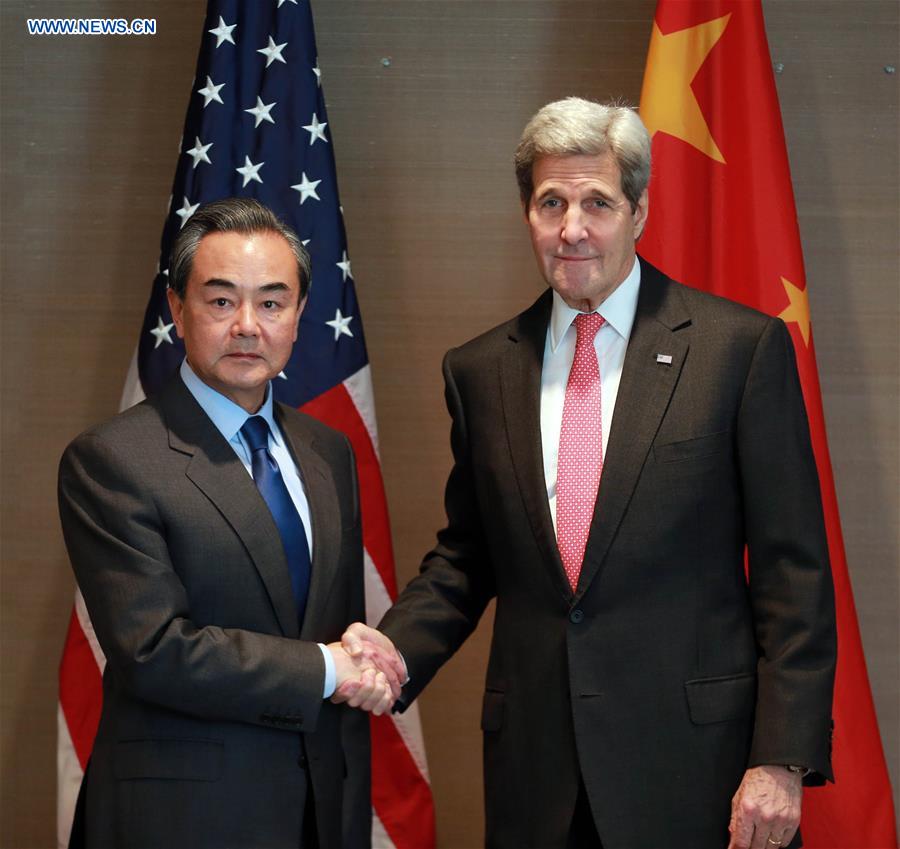
Chinese Foreign Minister Wang Yi (L) meets with U.S. Secretary of State John Kerry in Munich, Germany, Feb. 12, 2016. (Xinhua/Luo Huanhuan)
US THAAD system in S.Korea will complicate situation
China will not follow the US in imposing unilateral sanctions on North Korea, and the possible deployment of an advanced US missile defense system in South Korea will only complicate the security situation in the Asia-Pacific region, observers said.
Meeting with US Secretary of State John Kerry on the sidelines of the Munich Security Conference, Chinese Foreign Minister Wang Yi on Friday made clear China's opposition to the possible deployment of the Terminal High Altitude Area Defense (THAAD) system in South Korea.
As one of the most advanced missile defense systems in the world, THAAD can intercept and destroy ballistic missiles inside or just outside the atmosphere during their final phase of flight, according to the Xinhua News Agency.
Despite claims by Washington and Seoul that the missile shield would be focused solely on North Korea, analysts warn that the deployment would pose a considerable threat to neighboring countries, especially China and Russia.
"The latest North Korean nuclear test has served to assist the US' intended deployment of THAAD, which will become a direct threat to both China and Russia. Both countries will not let their guard down against South Korea after the deployment," said Lü Chao, a professor at the Liaoning Academy of Social Sciences.
The US and South Korea began talks on the deployment of THAAD, hours after North Korea carried out on February 7 what it said was a satellite launch but which others believe was a missile test.
The Pentagon has since stressed that it would like the anti-missile system to be deployed in South Korea "as quickly as possible."
There is already a THAAD battery stationed in Guam and the other key US ally in the region, Japan, is also considering taking on the system.
Broader agenda
"The deployment of the THAAD system by the US ... goes far beyond the defense needs of the Korean Peninsula and the coverage would mean it will reach deep into the Asian continent," Wang said in an interview with Reuters.
"It doesn't require experts. Ordinary people know that the deployment of the THAAD system is not just to defend South Korea, but a wider agenda and may even be meant for China," Wang said, urging the US side to act cautiously, not to undermine China's security interests or add new complications to regional peace and stability.
The North will not be threatened by either THAAD or nuclear-powered aircraft carriers. Instead, the country will only enjoy more strategic opportunities when THAAD leads to conflicts between major powers including China, Russia and the US, Lü noted.
"It's clear that the US is trying to promote its rebalance to the Asia-Pacific. The South [Korea] should also be aware that further submission to the US is likely to lead to more conflicts between itself, China and the US," he added.
Guiding principles
Wang stressed in the interview with Reuters that China's policy would be increasingly attentive on the regional nuclear issue and guided by three principles.
"First the Korean Peninsula cannot be nuclearized. This applies to the North and South. Second, there is no military solution to this issue. If there is a war or turbulence it is not acceptable for China. Third, China will not allow its legitimate interests including in national security interests to be undermined," Wang said.
China's three principles do not suggest a changing attitude in Chinese foreign policy toward North Korea, but reflect a continuance of foreign policy, with more specific details on its opposition to nuclearization and militarization, according to Lü.
"It also shows China's stance, which is different from the US, will not create chaos and conflicts," Lü noted.
China and the US have agreed to speed up the consultation process at the UN Security Council to reach a new resolution and take strong and effective measures to deter the further development of nuclear and missile programs by North Korea, Wang said in his meeting with Kerry.
When asked whether Beijing was ready to support stronger economic sanctions, Wang said the resolution would be wide-ranging, but its objective should be to curb Pyongyang's efforts to develop nuclear and missile technologies.
"Sanctions are not the end, the purpose should be to make sure that the nuclear issue in the Korean Peninsula be brought back to a negotiation-based resolution," he said, adding that China will back a UN Security Council solution to make North Korea "pay the necessary price."
Lü said that this is one of the sternest declarations from China and the nation will strictly follow the UN resolution.
However, Beijing will not follow the US in imposing unilateral sanctions on North Korea outside the UN framework, which is against China's interests and the spirit of humanitarianism, he said.
North Korea has been under UN sanctions since its first nuclear test in 2006.
"Our policy on the North is not weak and we will not tolerate challenges and provocation from the North. But it is groundless to demand a reaction from China similar to the US'," Lü noted.
Lü added that China is North Korea's largest trading partner, but a complete shutdown of bilateral trade will trigger a crisis similar to the European migrant crisis, which will in turn affect China and South Korea.
Day|Week

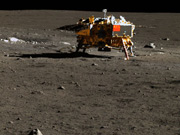 China releases HD true color images of lunar surface
China releases HD true color images of lunar surface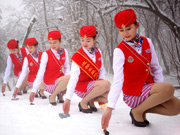 To-be flight attendants undergo training at snow-covered field
To-be flight attendants undergo training at snow-covered field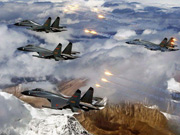 Aerial photos taken on J-11 fighter
Aerial photos taken on J-11 fighter 'Coldest town in China' — a fairyland you don't want to miss
'Coldest town in China' — a fairyland you don't want to miss Deep love for breathtaking Hainan
Deep love for breathtaking Hainan Beautiful Chinese tennis player Wang Qiang goes viral online
Beautiful Chinese tennis player Wang Qiang goes viral online Minus 71 degrees! Coldest village on earth
Minus 71 degrees! Coldest village on earth Chinese pole dancing master opens class in Tianjin
Chinese pole dancing master opens class in Tianjin The most beautiful town of snow in China
The most beautiful town of snow in China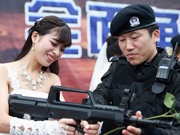 SWAT members hold romantic wedding in E China
SWAT members hold romantic wedding in E China